Stoke is a leading cause of death in Australia, with an average of 23 people dying from strokes each day. However, a simple yet ingenious program is helping to save the lives of stroke patients. Professor Sandy Middleton’s team, from Australian Catholic University, has designed cost-effective and easy to implement protocols for stroke patients, improving their survival and independence by 15.5% – meaning more than one in 10 additional lives are saved. The protocols monitor and treat Fever, hyperglycaemia (Sugar) and Swallowing (FeSS) in the 72 hours following a stroke. They have since been included in stroke clinical practice guidelines in Australia and other countries. It began with the landmark QASC Trial (2005–2010) which found assisting nurses to implement these protocols decreased 90-day death and dependency by 16%, and patients were 20% more likely to be alive four years after their stroke. They have continued rolling out the protocols, benefitting more than 13,300 patients to date. The team is now running a cluster randomised trial to assess the external facilitation and costs involved to support clinicians to implement the FeSS Protocols across 54 hospitals in Australia and five hospitals in New Zealand. Importantly, the team also focus on nurses in rural and regional hospitals who may not have access to the same level of resources as their metropolitan nurse colleagues.

3rd PLACE
Impactful Research Team of the Year Award
Quality in Acute Stroke Care (QASC) Research Team
3rd PLACE Impactful Research Team of the Year Award
Australian Catholic University - Australia
"Simple solution saving lives of stroke patients"
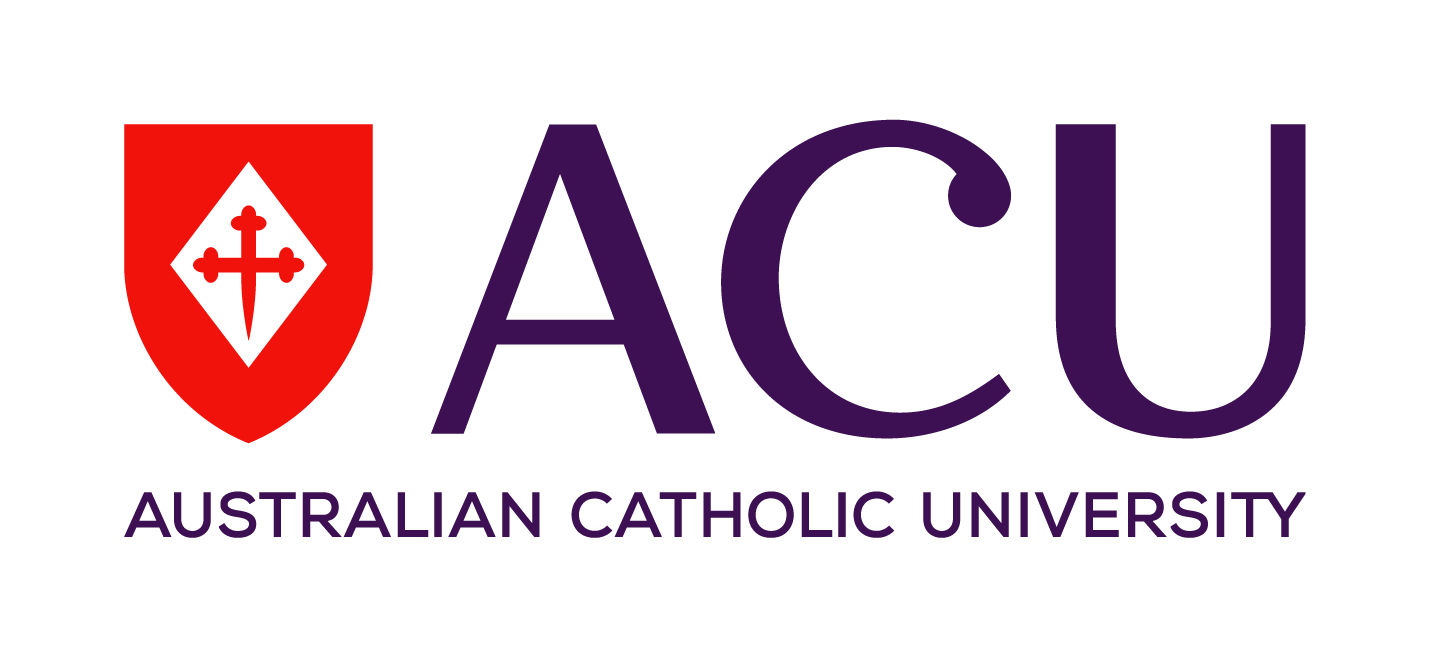
Engage on social media
(Professor Sandy Middleton account)
(Official Nursing Research Institute account)
(Simeon Dale Account)
(Official Quality in Acute Stroke Care (QASC) account)
(Professor Sandy Middleton account)
(Simeon Dale account)
Summary
Key People

Professor Sandy Middleton
Director of Nursing Research Institute & Prof of Nursing St Vincent’s Network Sydne, St Vincent’s Hospital Melbourne & ACU
Nursing Research Institute,
Australian Catholic University
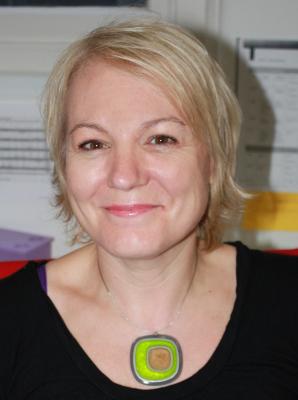
Simeon Dale
Clinical Research Fellow
Nursing Research Institute,
Australian Catholic University
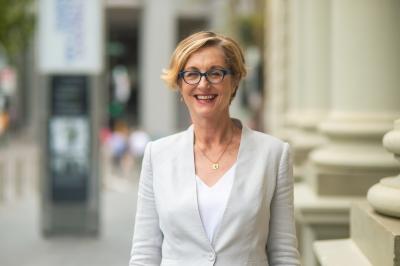
Professor Elizabeth McInnes
Deputy Director of Nursing Research Institute
Nursing Research Institute,
Australian Catholic University
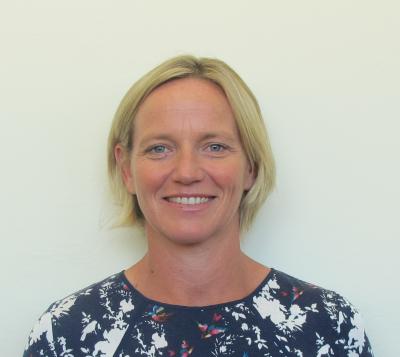
Kelly Coughlan
Clinical Research Officer & PhD Candidate
Nursing Research Institute,
Australian Catholic University
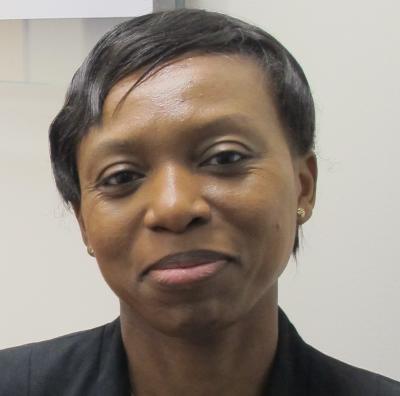
Dr Bola Fasugba
Senior Research Officer
Nursing Research Institute,
Australian Catholic University
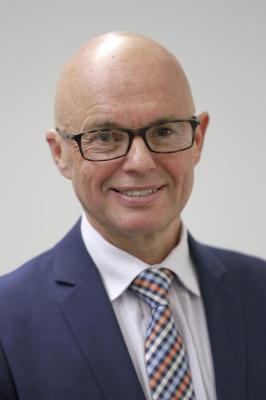
Professor Christopher Levi
Academic Stroke Neurology & Executive Director Research & Innovation and Cojoint Professor of Medicine
John Hunter Hospital Health & Innovation Precinct,
University of Newcastle
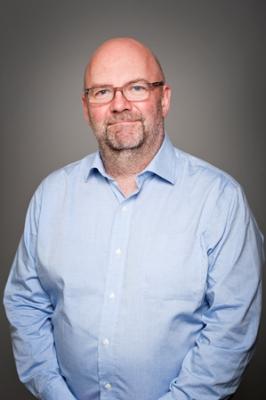
Professor Jeremy Grimshaw
Senior Scientist, Clinical Epidemiology Program, Ottawa Hospital Research Institute and Professor in the Department of Medicine
Ottawa Hospital Research Institute,
University of Ottawa

Professor N Wah Cheung
Director of Diabetes & Endocrinology and Chair of the national Association of Diabetes Centres
Westmead Hospital,
University of Sydney
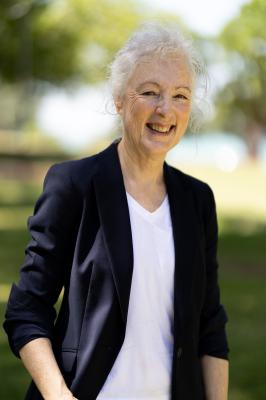
Professor Jeanette Ward
Adjunct Profesor
Institute for Health Research and Nulungu Research Institute in Broome,
University of Notre Dame
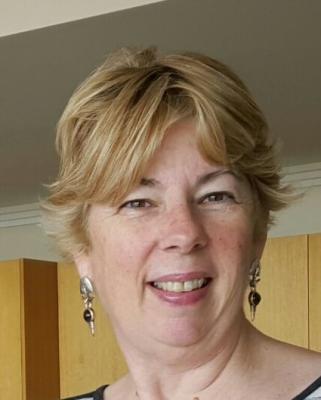
Professor Catherine D'Este
Senior Advisor at the Sax Institute and Conjoint Professor at the University of Newcastle
Sax Institute,
University of Newcastle

Professor Dominique Cadilhac
Head: Translational Public Health and Evaluation Division, Stroke and Ageing Research & Co-Director (Research Lead): Stroke and Ageing Research
Department of Medicine, School of Clinical Sciences at Monash Health,
Monash University
Acknowledgements
NHMRC
Stroke Foundation, Australia
Agency of Clinical Innovation, Sydney, NSW
European Acute Networks Striving for Excellence in Stroke (Angels) Initiative
Registry of Stroke Care Quality (RES-Q)
All the clinician at the hospitals in Australia and Europe
All the patients that have been involved in the studies
Ms Vivien Pollnow (consumer)
Nursing Research Institute team
Images
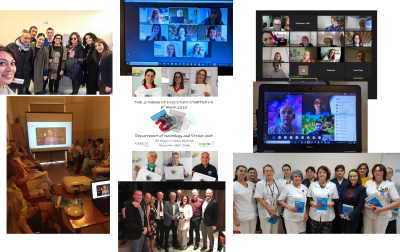
QASC Europe nurses & ANGELS Consultants
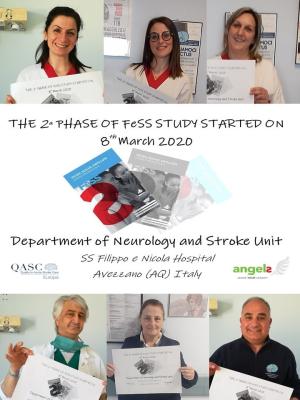
QASC Europe Nurses
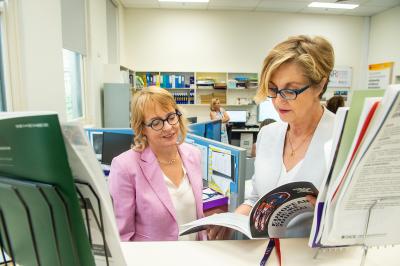
Professor Liz McInnes & Professor Sandy Middleton
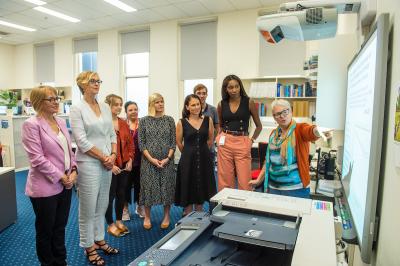
Nursing Research Team
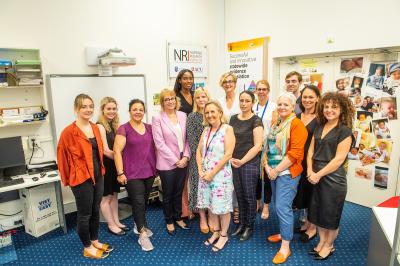
Nursing Research Team
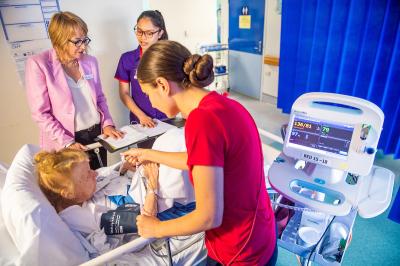
Stroke patient
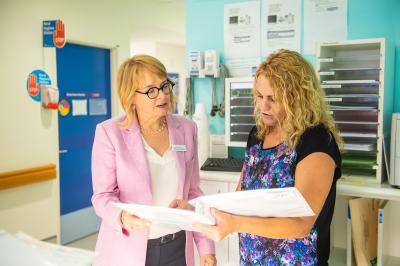
Professor Sandy Middleton & Clinical Nurse Consultant Kirsty Page
IMPACT STORY
Impacting lifes
In the years leading up to 2011, Professor Sandy Middleton was the lead investigator in a landmark NHMRC-funded study, the Quality in Acute Stroke Care (QASC) Trial, showing that simple nursing protocols were not only effective in minimising the effects of acute stroke, but they could save lives.
From this came the Quality in Acute Stroke Care (QASC) research program, which has since spread far and wide. One of the programs major accomplishments is that it’s work has swiftly made its way into real-world practice. Key to its success is its focus on implementation science research, which aims to close the gap between what we know, and what we do, in healthcare.
“In theory, you wouldn’t think you’d need this kind of research because when the evidence changed, people would see it and think, ‘Oh, we’re going to implement that at our place tomorrow’,” Professor Middleton says. “Unfortunately there’s often a significant delay in getting research into practice.”
While implementation can be challenging, the teams experience shows that it’s possible to translate evidence into practice quickly and effectively. The benefit is clear: using the protocols mean more than one in 10 additional stroke patients survive and get to go home to their families.
“I have a genuine belief that what we do benefits patients. That’s something I am really proud of, and that’s why my team and I show up each day with a goal to do a good job, and the drive to achieve meaningful change.” This research program has recently been recognised by the leading funding body for research the National Health Medical Research Council as one of their Impact Case studies (https://www.nhmrc.gov.au/about-us/resources/impact-case-studies/improving-stroke-outcomes)
LEARNINGS
Lessons learned
During and after each iteration of this translational research program the opportunity was taken to evaluate important information about how or why the intervention worked, the extent to which it was implemented as intended, and its relevance and reproducibility in other settings. In our latest study, the QASC Australasia Trial, we looked at how we could increase recruitment using different platforms and we produced a short animation video (https://www.youtube.com/watch?v=iTl0Kh22uZ0) which was used on social media alongside more traditional means of hospital recruitment. Following evaluation of the previous trials an online learning package hosted in the ACU OpenLearning space was created. We collaborated with educational psychologists specialised in adult learning. These videos are based on case studies using stroke experts, consumers, and roleplaying actors. Importantly, the design of this package involved consumers with lived experience.
Lessons learnt about how to scale-up research findings into every-day practice into multiple countries on such a large scale are invaluable to health professionals, policy makers and the wider community.
However, the implications for clinical practice extend beyond stroke care alone. Our methods for eliciting practice change are highly applicable to clinical areas other than stroke. Our program of research impressively showcases the valuable contribution nurses make on a day-to-day basis. Harnessing the potential of nurses, the biggest workforce in health care globally, is an excellent example of nurses leading the way in improving every-day care for patients.
FUTURE PLANS
What's coming?
More than a decade on from the publication of the QASC landmark trial results, a significant gap remains in implementing FeSS Protocols into standard stroke care across Australia and New Zealand, particularly notable in rural and regional settings. Given the protocols life-saving impacts, it is our priority to address this.
Our current study, the QASC Australasia Trial, will determine the effectiveness of a intervention with varying intensities of external remote facilitation in enhancing uptake of the FeSS Protocols. Importantly, this trial is testing implementation in rural and regional hospitals – frequently excluded from research due to practical constraints and expense.
We also intend to continue building on the research team’s achievements in celebrating and inspiring the next generation of researchers. To date, we’ve had multiple students and graduates engage in the research program – across undergraduate and postgraduate degrees – emphasising the teams’ success in engaging and inspiring new talent and building paths for future researchers.

